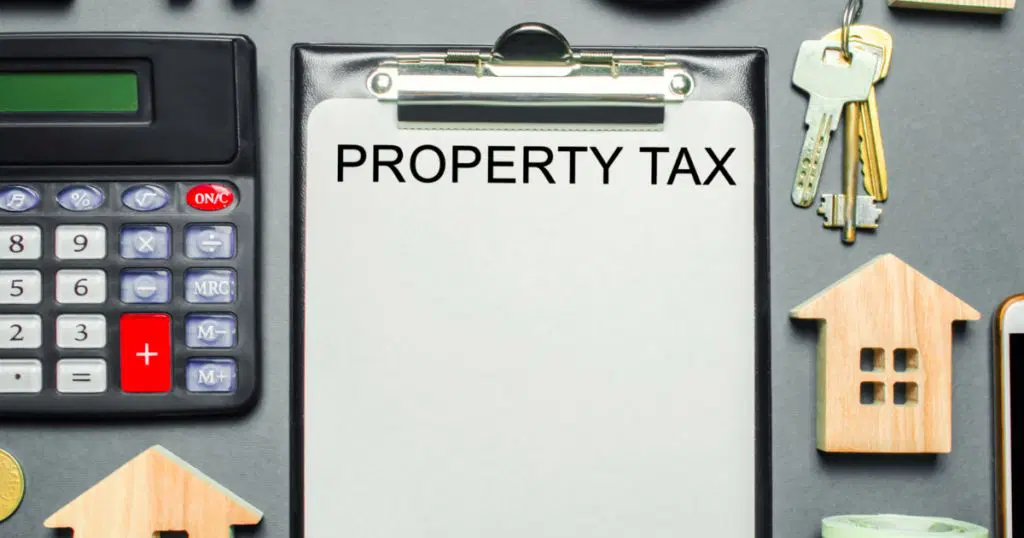More Illinois Families are Leaving Chicago After a Property Tax Increase

Cook County property owners are running out of time to pay taxes that were due in 2023 and avoid the Annual Tax Sale that begins Tuesday, Jan. 9.
To find out if your property is on the Annual Tax Sale list:
- Go to cookcountytreasurer.com
- Use the purple box on the home page labeled “Your Property Tax Overview” and search using an address or Property Index Number (PIN)
- A banner with an urgent warning will appear if your property is on the Annual Tax Sale list.
You may also use the website to correct your mailing address. Each year the U.S. Postal Service returns thousands of certified notices sent to owners of properties on the Annual Tax Sale list because property owners have not kept their mailing addresses up to date.
Owners of 47,216 properties owe more than $211 million in taxes that were due in 2022. More than 26,000 owe more than $1,000 while 20,888 owe less than $1,000, including owners of 14,738 properties in Chicago and 6,150 parcels in suburban Cook County.
The Treasurer’s Office mailed certified notices alerting property owners their unpaid taxes are to be offered for sale, which would put a lien against their properties. It is the first step in a process that can end with a property owner losing their home, business or land. Besides the mailings, the Treasurer’s Office published lists of properties with delinquencies tax lists in local newspapers.
Payment can be made in five ways:
Online for free at cookcountytreasurer.com
In person at any Chase Bank location in Illinois.
In person at any of more than 100 community banks where you have an account
What Happens If I Dont Pay My Taxes?
In Illinois, homeowners pay property taxes to the county tax collector of the county where the property is located. The county collector is usually the County Assessor or Treasurer.
If you do not pay your property taxes, you could lose your home. The county has a lien against your property for the amount of taxes owed. The county can then sell the lien to a tax buyer, who steps in to pay the taxes to the county. Even if your property taxes are sold, you remain the property owner subject to the discussion below.
You must “redeem,” or pay, the delinquent taxes, and penalties, plus costs, to the county clerk within 30 months of the tax sale. If you do not, the tax buyer can ask the court for a tax deed. If the tax buyer gets a tax deed, and records it with the county recorder of deeds, they become the legal owner. They can then evict you from your home. This process is explained in more detail below.
Note: This article applies to residential properties. It does not apply to commercial properties.
Tax sale overview
The tax sale process typically involves the following steps:
1. Notice by U.S. mail
Before the county sells unpaid taxes it sends the taxpayer notice by mail that the taxes are past due, or “delinquent.” The past due notice usually contains a deadline by which to pay the taxes. If you do not pay the taxes owed before the deadline, the collector will publish notice that it will sell your taxes.
If you think that there are property tax exemptions you should have received, due to your age, income, or disability, you can file certificates of error with the county collector before the date in the overdue notice. You can only go back 3 years to get a refund. Filing certificates of error should temporarily remove your property from the tax sale process while the county evaluates your refund request.
2. Published notice of delinquent properties
Next, the county collector will include your property in a list of properties with delinquent taxes that is published in a local newspaper.
The county will also mail a notice to you by registered or certified mail.
3. Tax sale
If you do not pay the taxes or apply for certificates of error before the date of the annual tax sale, the county may sell your unpaid taxes at a public auction.
4. Redemption period
After the unpaid taxes are sold to a tax buyer, you still have the right to redeem the taxes from the county clerk within 30 months. The tax buyer may agree to extend the 30-month period to give you more time to pay. But the tax buyer does not have to give you more time.
The tax buyer must prepare a notice of the expiration of the period of redemption and deliver it to the clerk of the Circuit Court. The clerk then must mail you the notice at least 3 months before the period of redemption expires.
5. Redemption process
To find out how much you need to pay to redeem the taxes, you need to apply to the county for an “estimate of redemption.” The fee for the estimate of redemption may be as little as $10, but generally increases over time. You should apply for the estimate of redemption well before the 30-month deadline.
To redeem the taxes, you must pay the county clerk the full amount shown on the estimate of redemption. This includes:
- Delinquent and current taxes,
- Interest, and
- Penalties plus costs.
The interest, penalties, and administrative costs can be substantial.
6. Tax deed
If you do not redeem the taxes from the county clerk within the 30-month deadline, the tax buyer can ask the court for a tax deed. Once the tax buyer records the tax deed, the tax buyer becomes the legal owner of the property. They can then evict you from the home.
7. Eviction
After it has a tax deed, the tax buyer can simply file a motion to evict you from the home in the same case in which it requested the tax deed. It does not need to file a new case for the eviction or serve you with a new summons.
What if I have a mortgage on the property?
A tax lien recorded by the county collector takes priority over all mortgages or liens recorded against the property, even those that were recorded before the tax lien. This means that the county will get paid before any other banks or people who have a claim to the home.
If you have a mortgage, and fall behind on property taxes, the mortgage company likely will step in to pay the taxes to the county collector. The mortgage company wants to protect its interest in the property.
Note: Failure to pay taxes is usually not allowed under a mortgage contract. This may result in the mortgage company filing a foreclosure.
What if I can’t afford to redeem the taxes?
If you cannot afford to redeem the taxes, you may want to try contacting your mortgage lender to see if it will redeem the taxes and add the balance to your existing mortgage.
You may also consider taking out a home equity line of credit (“HELOC”) or reverse mortgage to pay the taxes. To qualify for a reverse mortgage, you must be at least 62 years old. You should talk to an attorney or banker about the consequences of a reverse mortgage before choosing this route.
What if I have already lost my property to a tax buyer?
If you have already lost your property to a tax deed, you may be able to get some money from the county Indemnity Fund to compensate you for the lost property. You may be able to work with the tax buyer to use that money to buy back the property.
When to apply for an award
You must file a petition for indemnity within 10 years of the date the court issued the tax deed.
How to apply for an award
You must file a petition for indemnity with the court that issued the tax deed. You must name the County Treasurer as defendant, since the Treasurer serves as trustee of the indemnity fund.
You should talk to an attorney for help in filing an indemnity petition.
Last full review by a subject matter expert
June 09, 2020
Last revised by staff
November 20, 2023
